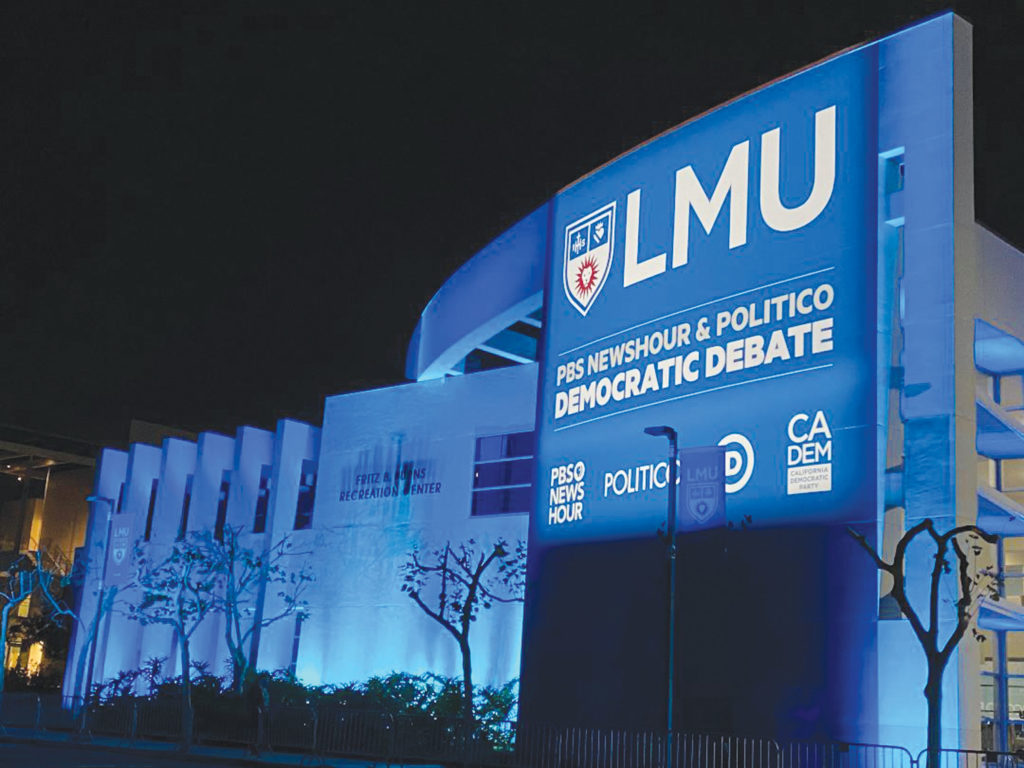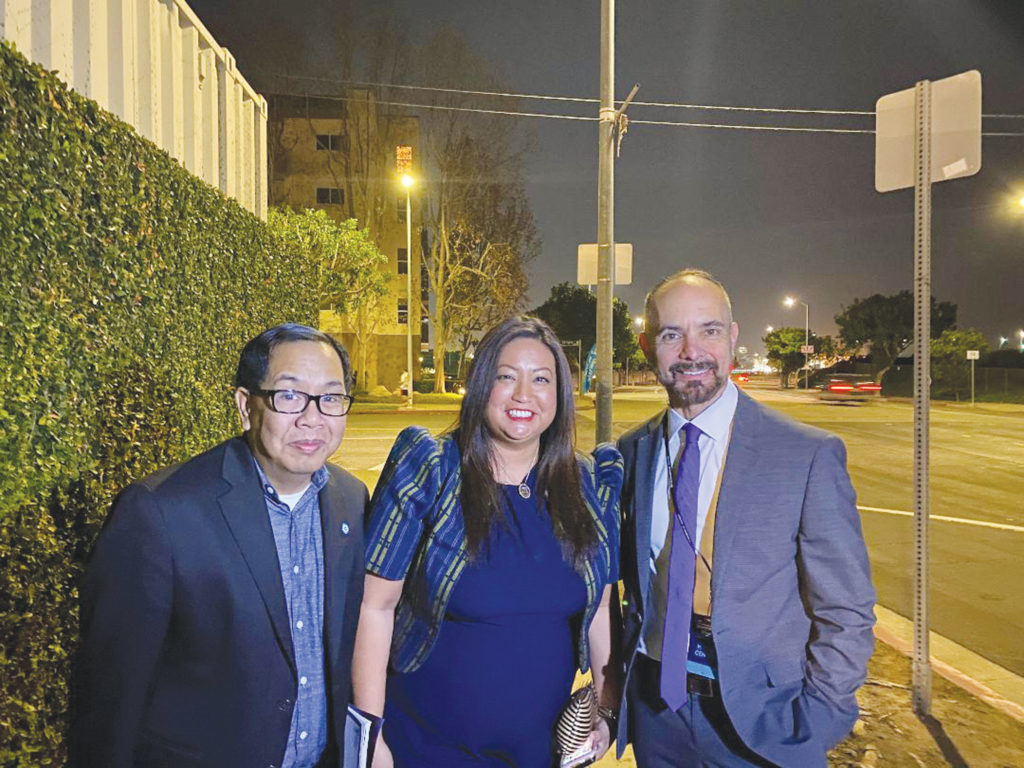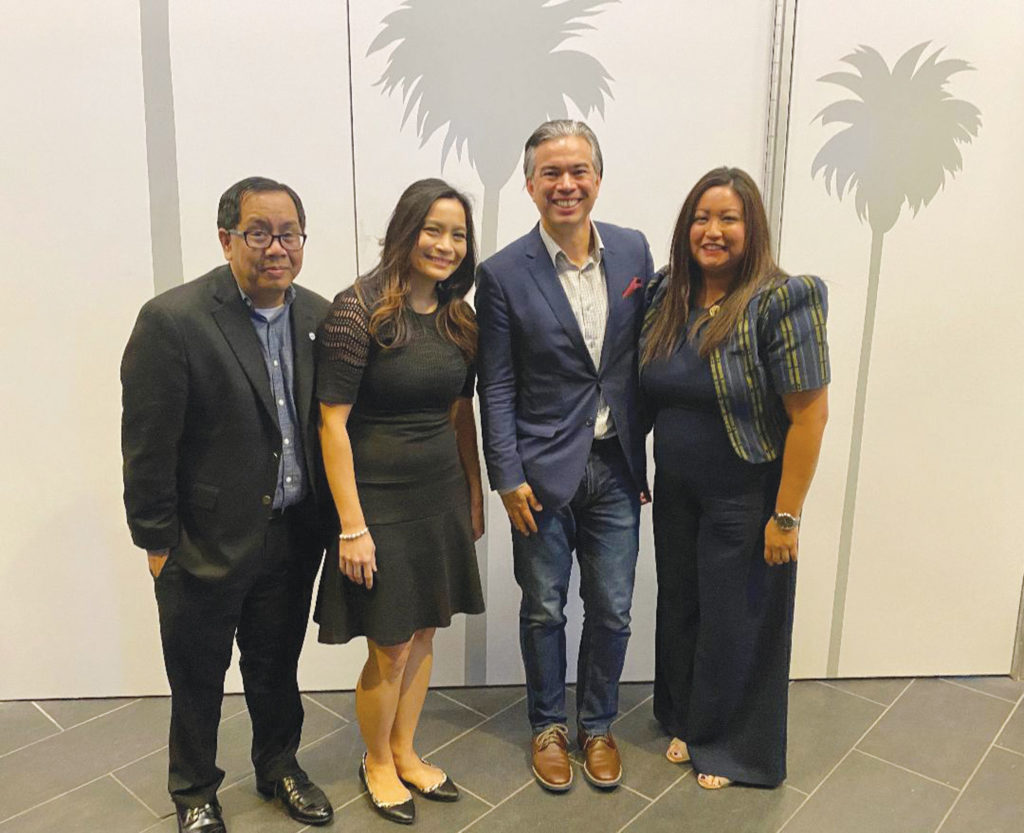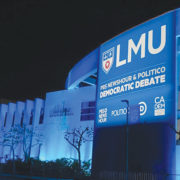
LOS ANGELES — Climate change, U.S.-China relations, campaign donations, college affordability and of course, the impeachment of President Donald Trump which took place the day before, were among the topics tackled in the sixth Democratic primary debate on Thursday night, December 19.
Hosted by PBS NewsHour/POLITICO at Loyola Marymount University, former Vice President Joe Biden, Senators Elizabeth Warren (D-Mass.), Bernie Sanders (I-Vt.) and Amy Klobuchar (D-Minn.), South Bend, Indiana, Mayor Pete Buttigieg, and businessmen Tom Steyer and Andrew Yang were the seven top candidates who took the stage to make their campaign appeals during the final Democratic debate of 2019.
But for several Filipino Americans who attended on Thursday, it was a missed opportunity for the candidates to highlight issues pertaining to Asian American and Pacific Islanders (AAPIs), considered the fastest-growing ethnic group in the country. California is home to 6.6 million AAPIs; Filipino Americans alone are 1.6 million.
“The candidates should try to speak and learn about our issues and community. One of my takeaways from tonight is that they still have a long way to go. All of them do,” Arnel Dino, vice chair of the Filipino American Democratic Caucus of the California Democratic Party, told the Asian Journal following the debate.
Data over the years has signaled that AAPIs will continue to play a significant role in political races at the national, state, and local levels, and are expected to reach 12.2 million registered voters by 2040 — doubling from 5.9 million in 2015 when the study by the UCLA Center for the Study of Inequality and the Asian Pacific American Institute for Congressional Studies was released.
“There were a lot of issues that were talked about and I loved how everyone was able to articulate what their thoughts were. What I didn’t like and actually what I’m walking away with is the memory of certain candidates going against each other on various issues,” Melissa Ramoso, state chair of the California Democratic Party API Caucus, added.
One of the topics Ramoso observed was not as predominant on the stage was immigration, though candidates, for the most part, agreed on expanded support for recipients of the Deferred Action on Childhood Arrivals (DACA) program, for example.
She explained, “I wanted them to talk more about immigration and it’s important we know that there are people of color besides Andrew Yang running for this office and because we don’t have them on that stage, it’s not an issue as it should be.”
Yang, the first Asian American man to run for president as a Democrat, was asked about what message being the only candidate of color on stage sent to voters.
“It’s both an honor and disappointment to be the lone candidate of color on the stage tonight,” Yang said, adding “I miss Kamala, I miss Cory, though I think Cory will be back.”
California Senator Kamala Harris dropped out of the 2020 race earlier this month, while New Jersey Senator Cory Booker and former San Antonio Mayor Júlian Castro did not qualify for Thursday’s debate.
Yang reasoned that the stage’s lineup was reflective of how most Americans don’t have disposable income to donate to campaigns and cited the income disparities in the black and Latino communities. The son of Taiwanese immigrants himself, Yang did not mention AAPIs, however.
“These are the numbers that define race in our country. And the question is, why am I the lone candidate of color on this stage? Fewer than 5% of Americans donate to political campaigns,” Yang suggested. “You know what you need to donate to political campaigns? Disposable income.”

Fil-Am Christopher Cabaldon, mayor of West Sacramento, also noted that the nuances of immigration once families come to the United States was another area that was glossed over.
“We focus a lot on the border and around immigration policy, which is really critical. But as we know in our community, it’s also about what happens when you’re here in terms of access to professions. It’s about justice for our manongs and folks who fought in the war. There are so many other issues that need to be heard that I hope would have come out in California’s debate but didn’t,” Cabaldon told the Asian Journal.
With California’s primary moved up to March in 2020, Fil-Am leaders are calling on candidates to take the time to understand the community and the issues it faces, such as family reunification or affordable health care. In turn, it also means Fil-Ams should be registering to vote and turning out to cast their ballots.
“Our issues matter. At end of the day, this comes down to making sure our community votes in 2020 to show impact that we can influence and change elections on the local, state and federal level,” said Alex De Ocampo, co-founder of the Filipino Voter Empowerment Project, which seeks to tap the eligible but unregistered Fil-Am voters across California.
There are only 396,000 registered Fil-Am voters in the state, the organization has found.
De Ocampo said, “From phone banking to knocking on doors, FVEP is committed in the upcoming weeks to make sure our community is ready to cast their ballot. We are committed through grassroots organizing that involves volunteer recruitment, voter education and digital communication to reach out to the Fil-Am community up and down the state.”

For state Assemblymember Rob Bonta, who had initially endorsed Harris before she suspended her campaign, he’ll be spending the next few weeks weighing the other candidates’ platforms before he makes another endorsement.
“Filipino Americans need to look at the folks who are inclusive, who see the community as who we are and will fight for our community members and not just some. Most say they’ll do that and I believe most will but we need to stepping up and asking for things. We can’t sit back and wait,” Bonta told the Asian Journal. “Communities that are active, engaged and are registered to vote and then come out to vote are, the reality is, who the candidates listen to. We as a Filipino American community can be better at that.”
In contrast, AAPIs in Nevada — which make up 10% of the state’s eligible voters — has gotten direct contact with several candidates outside of high-profile fundraisers over the past few months, whether it’s Olympic figure skater Michelle Kwan campaigning for Biden or Warren and Sanders holding meet-and-greets at local AAPI businesses.
Booker was in Las Vegas earlier in the week, where one of his campaign events included a caucus training in Tagalog with local Fil-Am organizers. Filipinos are considered the largest AAPI group in the state at 169,462 and Tagalog is one of the languages required for the ballots in Clark County, for example.
After the debate on Friday, Buttigieg also made his way to the city for a town hall with AAPIs, his second event this year with the community there.
Cabaldon, who’s a surrogate for Buttigieg, said that the smaller cities in California — though, the state is largely considered blue — are equally crucial for grassroots recruiting and candidate interaction.
“This election isn’t going to be won on airwaves. It’s going to be won on the ground and particularly in California in communities like ours. It means going to Stockton, Vallejo, Artesia, Cerritos, Daly City and to my city and activating voters that have been left behind and are largely invisible in this race,” he said. (Chrstina M. Oriel/AJPress)






